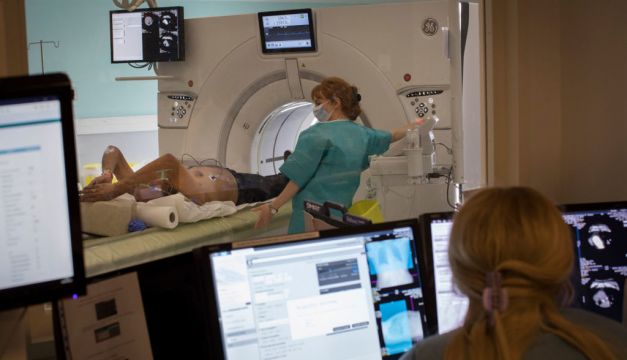"Timeliness of access - especially pre-diagnosis - remains a problem for patients" in Ireland with cancer, according to data published by the Organisation for Economic Co-operation and Development (OECD).
The European Cancer Inequalities Registry, published ahead of World Cancer Day (February 4th), gives a detailed breakdown of cancer incidence, care and survival in each of the 27 EU member states.
The latest figures showed Ireland had a higher incidence of cancer in 2020 compared to the EU average, although the report states this "is attributable in part to increasing life expectancy overall".
The data found that the average life expectancy at birth in Ireland was 82.8 years in 2020, higher than the EU average of 80.6 years.
"For nine of the ten most common causes of cancer death, mortality rates have been decreasing over time," the report adds.
However, the researchers also noted Ireland's health expenditure as a percentage of Gross Domestic Product (GDP) was well below the EU average (10.9 per cent) at 7.1 per cent.
While the State "outperformed by a small margin" EU averages for five-year net survival rate for some of the most common cancers between 2010 and 2014, which the report states is "indicative of high-quality care", it was noted that timely access to care is impacting patients.
Screening
Regarding early detection efforts, Ireland's attendances for cervical and colorectal screening was behind the EU's figures, while the figures for breast cancer screening attendances (67 per cent) were just marginally ahead of the EU average (66 per cent).
In 2020, there were 14,378 new cancer cases detected in men and 12,689 new cases in women. Prostate and colorectal cancers accounted for the majority of male cancers (31 per cent and 13 per cent respectively), while 27 per cent of new cancer cases among women were breast cancer.
Compared to the EU, Ireland's incidence of new prostate cancer cases was considerably above the EU average of 23 per cent, while the State's breast cancer figure was slightly behind the EU rate of 29 per cent.
The report adds that cancer is the most common cause of death in Ireland, with the proportion of death attributable to the disease increasing from 20 per cent in the 1980s to over 31 per cent now. However, in 2019, cancer was found to have been the cause of 261 deaths per 100,000 people in the population, falling from 2011's rate of 299 deaths per 100,000.
"Of the 10 main causes of cancer deaths in Ireland, the country saw a reduction in per capita mortality between 2011 and 2019 for all the most common cancers except liver cancer," the research found.
In terms of prevention policies, the report highlights that "smoking and alcohol consumption are important drivers of cancer incidence and mortality in Ireland", adding: "progress is being made to reduce the rates of both".
While it credits Ireland for being "among the bottom quarter of smoking rates in the EU", it states alcohol consumption remains above the EU average.







